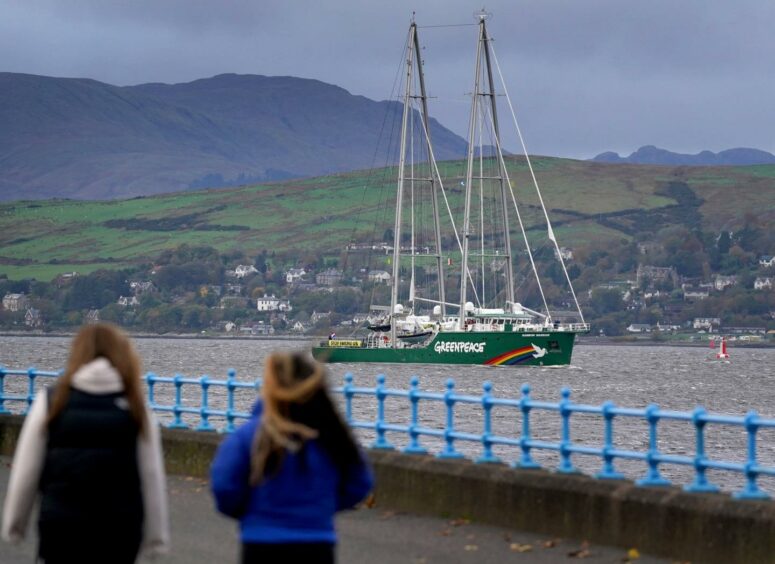
A first draft of the Glasgow final decision text at COP26 has been published ahead of the conference wrapping up this week.
Over the weekend a summary of issues highlighted by parties as important for inclusion in the COP26 cover decisions was released.
It’s designed to facilitate further discussion as is just one element of the overall COP26 outcome.
Glasgow has been at the centre of global news recently as world leaders meet in the city for COP26, portrayed by some as the last chance to curb climate change.
The draft decision text underlines several key issues, including the need to recognise the “urgency of action” in keeping global temperature rises to 1.5°c.
There are calls too to “increase the ambition”, to focus on “youth participation and empowerment” and to “urgently scale up finance flows”
It also asks countries to welcome the findings of the IPCC climate report, released earlier this year, which signalled a “code red” for humanity.
The draft has been published ahead of a final version being drawn up before the conference draws to a close on Friday.
But environmental groups have been quick to hit out at the paper, flagging the lack of focus on fossil fuels.
When the IPCC report was released in August it was accompanied by numerous calls for oil and gas to face the chop.
And Greenpeace has described the lack of recommendations in the first draft to phase out hydrocarbons as a “glaring omission” that goes against expert guidance.
It has put the exclusion down to “blocking by fossil fuel interest”, while also calling on negotiators to “stand up to” the likes of Saudi Arabia and Australia.
Greenpeace added that it is “gravely concerned” because the first draft of a COP text tends to be “relatively ambitious”, becoming “weaker” as negotiations progress.
“For the first draft to be so weak does not bode well,” it said, though it’s understood the document does not prejudge final outcomes.
Jennifer Morgan, executive director of Greenpeace International, said: “What’s very concerning here in Glasgow is that the first draft of the climate pact text is already exceptionally weak. Usually the text starts with some ambition, which then gets watered down.
“To keep 1.5 alive, four words must be added: ‘fossil fuels phase out’, and countries must come back next year to close the gap.”
The landmark report from the IPCC hasn’t been the only study to take aim at the fossil fuel industry this year.
A separate study from the International Energy Agency (IEA) said no new oil and gas fields should be developed – beyond those already sanctioned — if net zero by 2050 is to be a reality.
Edwin Namakanga, a 27-year-old environmental campaigner from Uganda, said: “In my lifetime I’ve seen first hand the destructive impact of the climate crisis, which everyone knows is driven by fossil fuels.
“The result from Glasgow must be the end of new fossil fuels, and there must be proper financial support for countries in the Global South. We need solidarity and just transition to renewable energy, because anything less is a death sentence for whole peoples, countries and areas.”
Greenpeace’s claims coincide with the release of analysis that shows oil and gas lobbyists at COP26 outnumber delegates from any single country.
Global Witness, the NGO behind the research, said that hydrocarbon backers are “flooding” the event.
A COP26 spokesperson said: “We’ve seen genuine progress in the first week with a number of commitments which are key to accelerating global climate action and keeping 1.5 alive.
“We’re looking forward to productive negotiations this week to push hard and make further progress for a positive outcome for the planet.”

 © PA
© PA